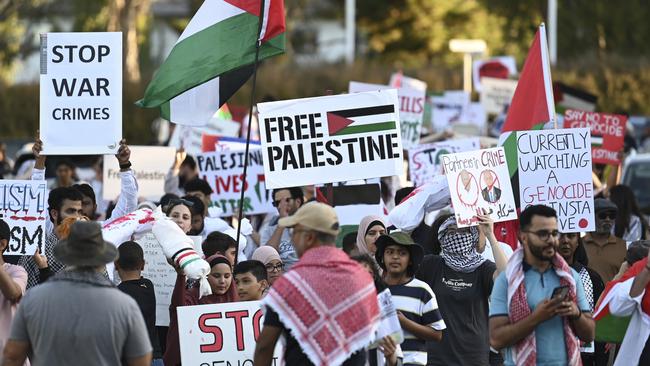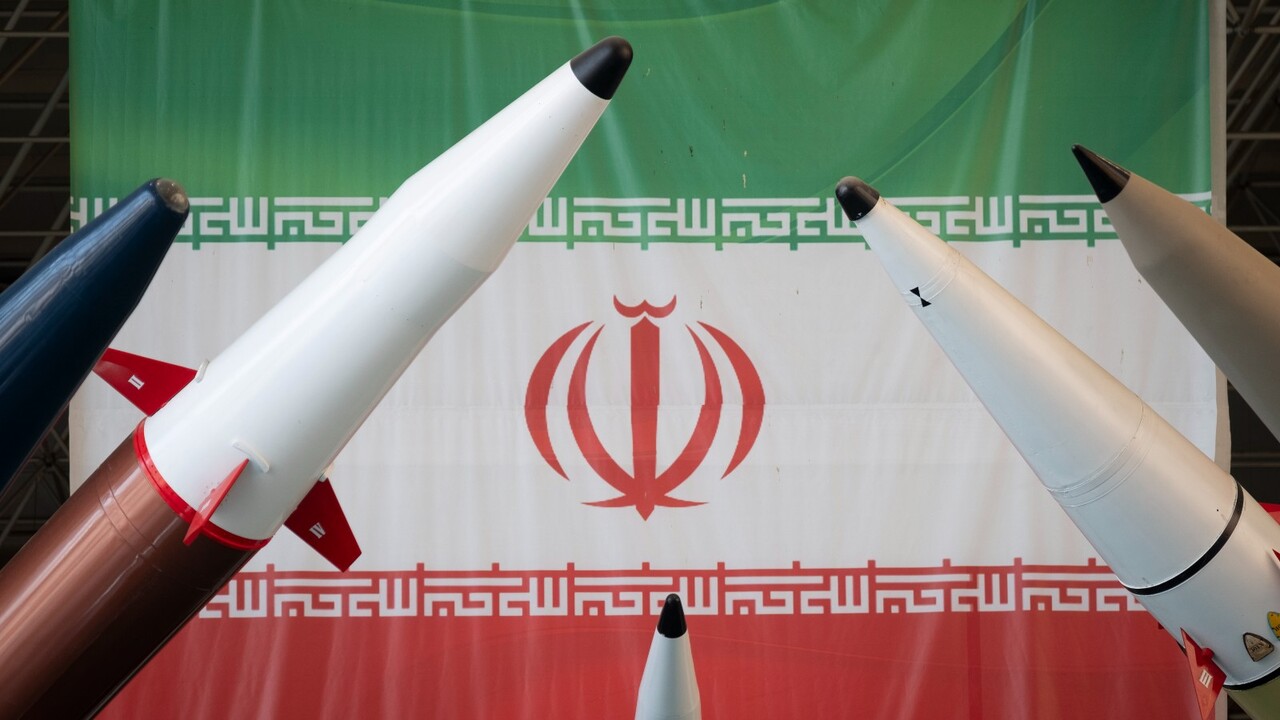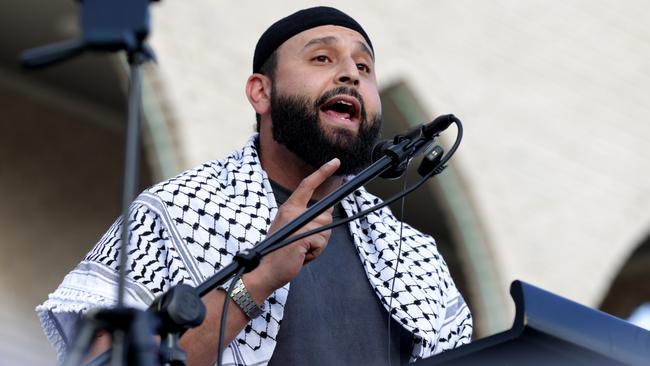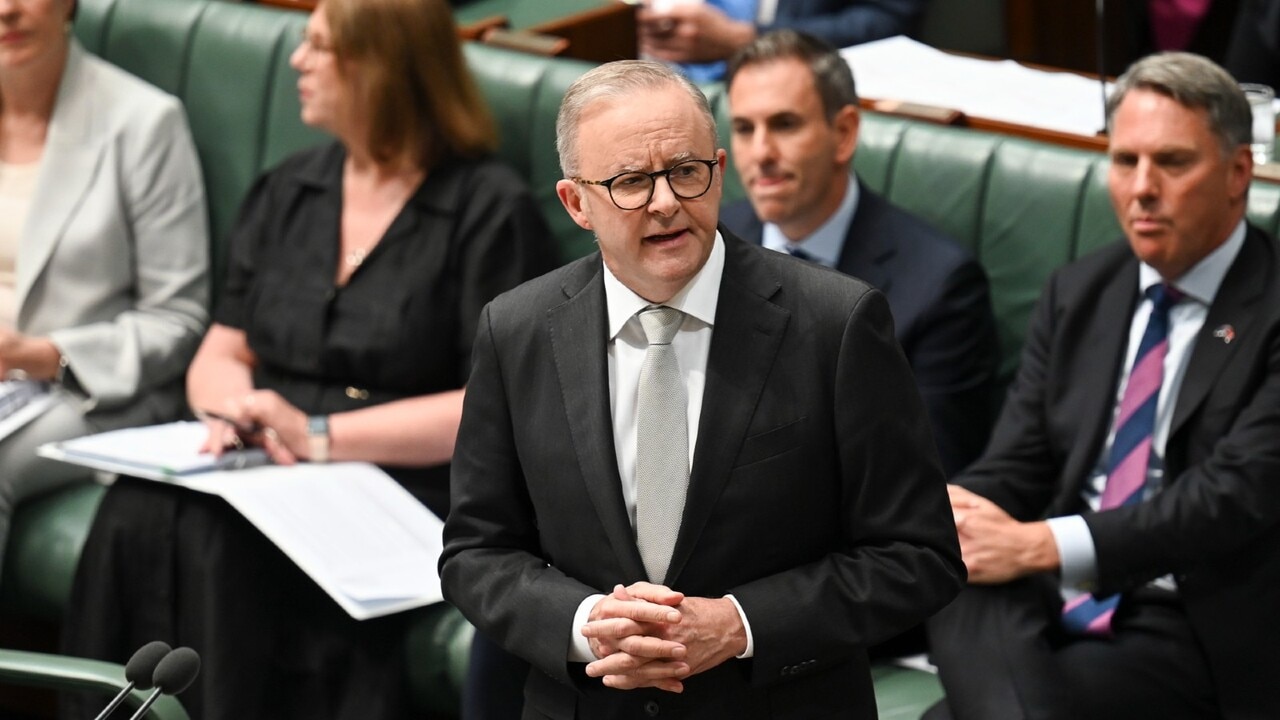
In effect, ever since October 7, 2023 the government has stood by as Islamist organisations ramp up their support for terrorism and issue statements that are vilely anti-Semitic.
What is puzzling, however, is that the government’s reluctance to tackle those organisations has been matched by that of ASIO and of the state and federal police forces, which, it appears, have shied away from calling for them to be proscribed.
It is true that stringent criteria have to be met for listing a group as a terrorist organisation. According to Division 102 of the Criminal Code, the government “must be satisfied on reasonable grounds that the organisation: (a) is directly or indirectly engaged in, preparing, planning, assisting in or fostering the doing of a terrorist act; or (b) advocates the doing of a terrorist act”.
But it is equally true that groups such as Hizb ut-Tahr, even when they are not directly involved in violence, “foster” the doing of criminal acts that range from anti-Semitic attacks to domestic and international terrorism.
To say that is not to ignore the theory, initially formulated by Bob Lambert, inaugural head of Scotland Yard’s Muslim Contact Unit, that “soft Islamists” can act as a rampart against the most violent forms of Islamist extremism.

“Salafis and Islamists,” Lambert claimed, “often have the best antidote to al-Qa’ida”, as they channel radicalism into religious, rather than political, fervour. Moreover, providing the “soft Islamists” with financial assistance would make them easier to control and facilitate monitoring their supporters.
Lambert therefore advocated forming generously funded “partnerships with Muslim groups conventionally deemed to be subversive to democracy”. Having received the Blair government’s approval, his unit proceeded to establish a far-reaching network of agreements that included the Muslim Brotherhood and Hizb ut-Tahrir.
Adopted by a broad range of Western security agencies, that strategy, which came to be known as “Lambertism”, proved utterly disastrous.
That was first and foremost because the so-called “soft Islamists” do not only preach that the West, and everything associated with it, is corrupt and hence “haram”, that is, prohibited, to righteous Muslims.
They also claim, as did Taqiuddin An-Nabhani – who founded Hizb ut-Tahrir in 1953 and whose work remains the group’s dogma – that there is an irreconcilable conflict between Islam and the “colonial disbelievers” whose goal is to “enslave” Muslims and destroy Islam’s inherently superior civilisation.
To believe that Islamic piety can be reconciled with Western values such as democracy, equal rights for men and women and religious freedom is consequently “a kufr concept” (ie, a violation of the faith) that equates “the truth (haqq) and falsehood (batil), the religion of truth and distorted religions, misguidance (dhalala) and guidance”.
It is Muslims’ duty, said An-Nabhani, to rigorously disavow those values, chastise any Muslims who adopt them, and in that way and many others undermine the West, hastening the Caliphate’s triumphant restoration.
Lambertism gave those views a far wider and more authoritative platform than they could otherwise have secured. As Shiraz Maher and Martyn Frampton concluded in an influential review of the policy, titled “Choosing our friends wisely: Criteria for engagement with Muslim groups”, it led the British government to “underwrite the very Islamist ideology which spawns an illiberal, separatist, intolerant and anti-Western world view”.
And to make things worse, it supported groups that, while purporting to “address the grievances of young Muslims”, were “at the forefront of stoking those grievances, including alleged state-sanctioned ‘Islamophobia’ ”.

Nor did the damage end there. The “soft Islamists” consistently argued that violence is not just legitimate when Muslims are under attack: it is a praiseworthy act of religiously prescribed heroism. But “if Muslims are justified, even lionised, for carrying out acts of violence in places where they are ‘attacked’, why not also in the West, where the very same narrative says Muslims are under attack?”.
The concern that Lambertism helped propagate Islamist violence was fully borne out by terrorism experts Hugo Micheron in 2020 and Johannes Sale in 2021. Using statistical analysis and careful case studies, they found, controlling for a wide range of socio-demographic factors, that the active presence of groups such as Hizb ut-Tahrir was a powerful predictor of subsequent anti-Semitic attacks and of outright jihadism.
Confirmed again by Micheron in 2023, those evaluations show that while Hizb ut-Tahrir, the Muslim Brotherhood and their myriad front organisations repeatedly claim to be non-violent, they provide “the mood music to which the violent extremists dance”.
Lambertism has, as a result, virtually disappeared from the European scene, replaced by a more realistic understanding of Islamist extremism. As the German Federal Administrative Court noted when it mandated Hizb ut-Tahrir’s proscription, an organisation that advocates killing Jews, urges men to beat “arrogant” wives and calls for homosexuals to be executed can hardly argue that it adheres to constitutional values.
Upholding that decision on appeal, the European Court of Human Rights held that it is entirely consistent with the rule of law for democracies “to prevent individuals or groups with totalitarian aims” from “taking advantage of rights and freedoms to perform acts aimed at destroying (those) rights and freedoms”.

Just how far that principle should be pressed is a difficult question. Precisely because of that question’s complexities, the Executive Council of Australian Jewry has proposed, in a submission to the Parliamentary Joint Committee on Intelligence and Security, that an intermediate status be created. While falling short of proscription (which would remain in place for terrorist groups) the new status, modelled on the state and territory laws applicable to criminal gangs, would allow the government to impose controls on organisations such as Hizb ut-Tahrir that can be shown to represent a substantial “risk to public peace, safety or order”.
That proposal is inevitably controversial. What is not is that between October 1, 2023 and August 31, 2024 there were at least 1800 anti-Semitic incidents in Australia, a 324 per cent increase compared to the previous year. Nor is it controversial that the government has done nothing whatsoever to stem the tide.
On the contrary, it continues to endorse organisations involved in rallies such as those that glorified Yahya Sinwar, using your taxes and mine to finance outfits that even were they lawful, are unquestionably awful. It also continues to shy away from revoking the visas of non-citizens who participate in those organisations’ activities.
And by constantly placing anti-Semitism and “Islamophobia” on the same plane – as if there were Jews marching in our streets shouting anti-Muslim slogans – it allows the perpetrators to cast themselves as victims, echoing and amplifying the Islamists’ mood music. With Islamist extremism destroying our social fabric, it is high time Labor changed its tune.







Last weekend’s rallies that hailed Yahya Sinwar as a “legend” who “died a warrior’s death” came as no surprise. Nor was it surprising that the Albanese government, instead of denouncing the United Muslims of Australia, whose representative was among those praising the terrorist, immediately defended it for “working closely with the government”.